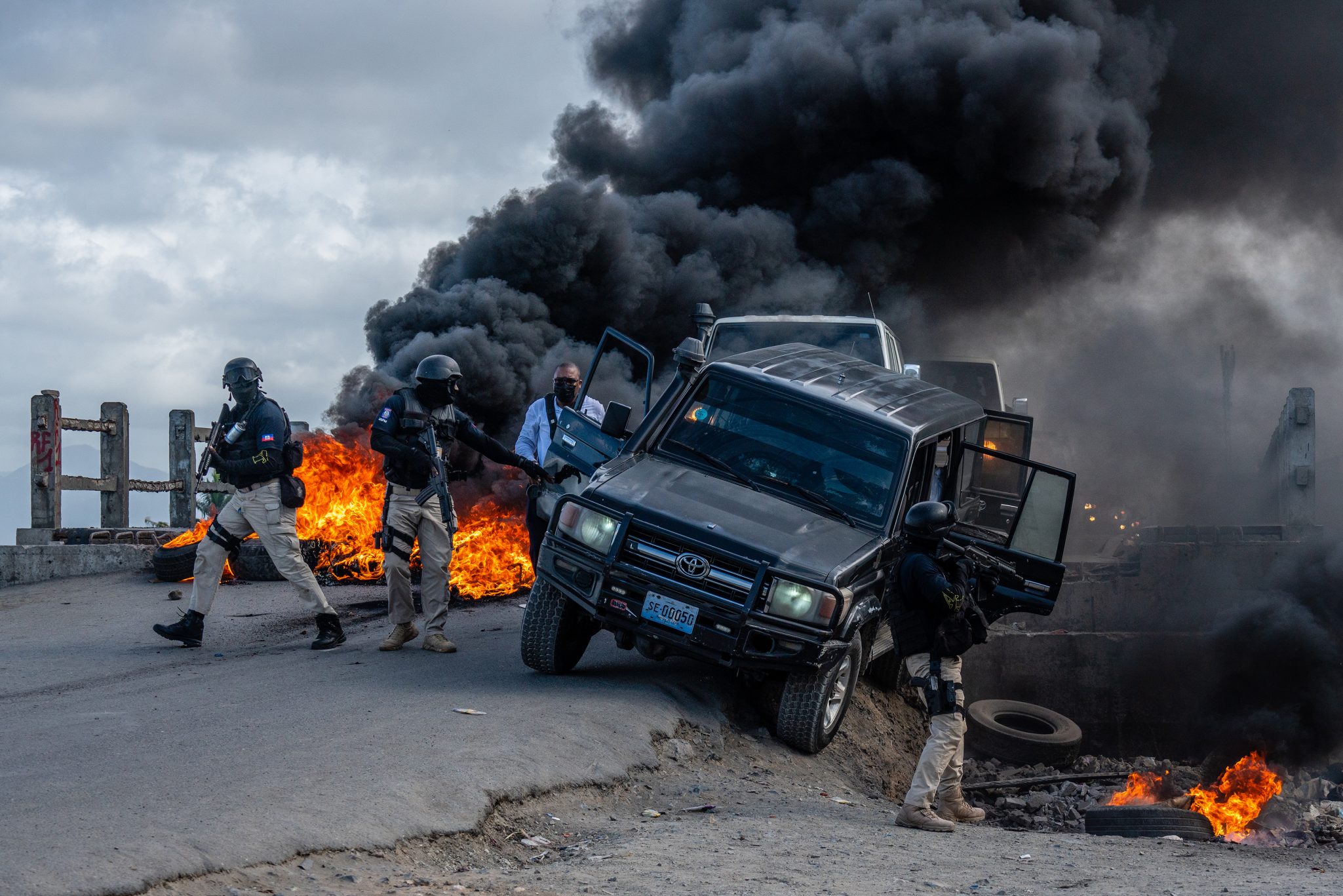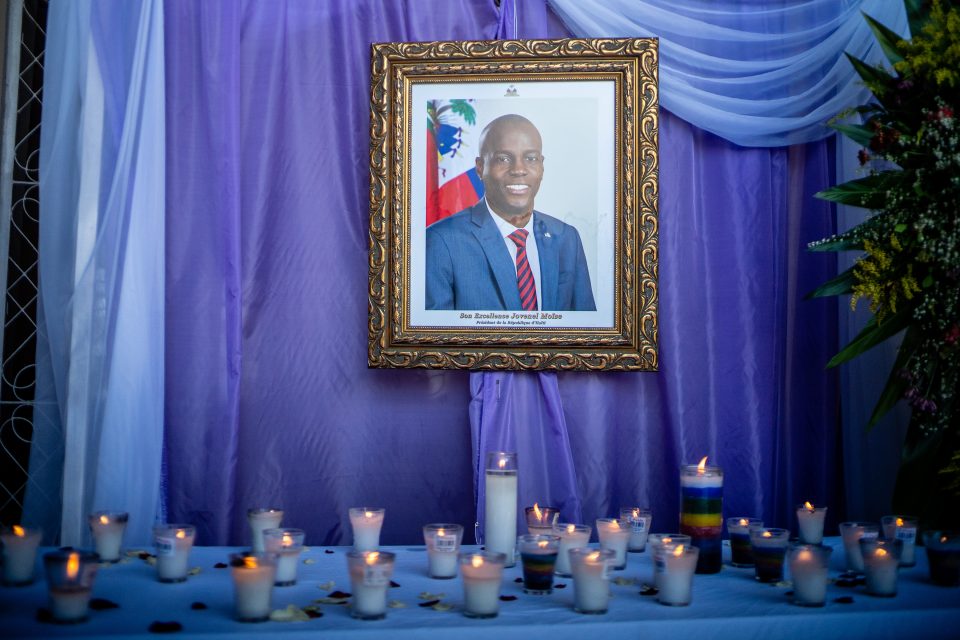CAP-HAÏTIEN, Haiti — Hours before mourners were due to pay tribute to assassinated President Jovenel Moïse at a state funeral on Friday — a moment many hoped would help mend a fractured nation — the northern city of Cap-Haïtien burned with anger and frustration, exposing Haiti’s deep divisions.
On Thursday, the streets billowed with the black smoke of burning tires, a common form of protest in a country split by geography, wealth, and power. Large crowds of demonstrators ran through the narrow colonial streets, chanting, “They killed Jovenel, and the police were there.”

Distrustful of the elite coming from the capital, angry men tried to block the arrival of mourners from outside the city, throwing a concrete block at the lead car of a motorcade that had navigated through the fire, and later dragging a concrete telephone pole across a road.
“We sent them someone alive, they sent him back a cadaver,” screamed Frantz Atole, a 42-year-old mechanic, promising violence. “This country is not going to be silent.”
The state funeral, planned for the Moïse family homestead, less than a half-hour from downtown Cap-Haïtien, was expected to draw diplomats from around the world and officials from throughout the country. Yet the turmoil ahead of the ceremony raised questions of security and whether all of those intending to pay respects to Moïse would actually be able to reach the funeral.
Two weeks after Moïse was riddled with bullets in his own bedroom in the capital, Port-au-Prince — killed by a group of Colombian mercenaries, the authorities say — the country is still spinning with unanswered questions and seething with anger. Several members of Moïse’s own security detail have been questioned and taken into custody as well.
A new government was installed in the capital this week, with its leaders vowing to get to the bottom of the horrific killing and to build consensus among the country’s warring political factions and its furious civil society groups. Yet the unrest Thursday threatened to turn hopes of consensus into a naive, unrealized dream.
“The bourgeoisie from Port-au-Prince are responsible. They are the reason for all of this,” said Emmanuella Joseph, a 20-year-old secondary school student, crying into a face cloth on the side of the road at the tail end of a running protest. “All I’m asking is to shut down all the streets to stop them from coming.”
She added in a wail that the president’s killers had been outsiders who had long meddled with the country’s destiny. “What kind of nation comes and kills a president?”
Others shouted that the police and presidential guard, whose members suffered no reported injuries during the attack on the president’s home, had been complicit in the murder.
Cap-Haïtien was dressed for mourning on Thursday. It was once the capital of the French colony of St. Domingue, which claimed one of the most brutal slave plantation economies in the world and was later overwhelmed by the world’s most successful slave rebellion. Banners strung across the roads read “Justice for President Jovenel” and “Thank you President Jovenel. You gave your life for the people’s fight and it will continue.”
Just off the city’s main stone square, where rebel leaders were executed more than two centuries ago, mourners lined up to sign condolence books and light candles before a large photo of the president in a government building.
“We are living in a time that’s so fragile,” said Maxil Mompremier, standing outside the colonial-era Notre Dame de L’Assomption Cathedral, where Moïse’s supporters had gathered earlier for a service. “Nobody understands what happened. A lot of people are afraid.”
Hailing from the north of the country, Moïse was not well-known in the country’s power center of Port-au-Prince when he was picked by the ruling party as its candidate in the 2015 election. He was born in the nearby town of Trou-du-Nord and later began his entrepreneurial career from Port-de-Paix, where he became president of the Chamber of Commerce.
The fact that he was killed far away in Port-au-Prince inflamed old divisions between the less developed north and the country’s capital and economic center, as well as deepening the rifts between the country’s small elite and its destitute majority.
“It comes back incessantly in all the history of Haiti,” said Emile Eyma Jr., a historian based in Cap-Haïtien, speaking of the resentment felt by northerners. “What is dangerous is that both the question of color and the question of regionalism are weaponized for purely political reasons.”
The president’s wife, Martine Moïse, who was injured in the attack, has announced that her family would pay for the funeral. Planes arrived at the normally sleepy airport throughout the day, with more scheduled to arrive on Friday.
But on the streets of this city, the anger burned.
“We are going to protest all night,” Atole vowed as tires burned on a bridge behind him. “We are going to give them a hard time in town.”
This article originally appeared in The New York Times.


